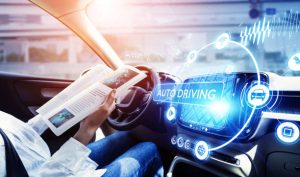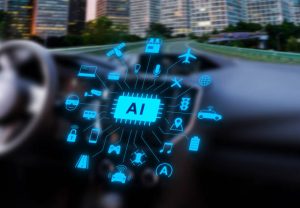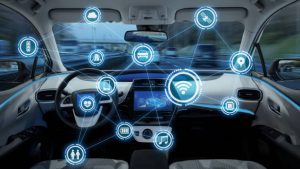According to proposed amendments to the Highway Code, drivers of self-driving cars would not be held accountable for car accidents.
According to the Department for Transport, crash claims will now be handled by insurance firms. The amended regulation will permit people to watch TV on built-in screens as well, although drivers will need to be prepared to regain control of their vehicles if necessary. It is anticipated to go into effect in the summer. Mobile phone use while driving will continue to be prohibited.
No vehicles are yet allowed to self-drive on UK roads, but has stated that the first could be ready for usage this year. Driverless cars have “remained tantalizingly just beyond the horizon” for some years, but “the technology appears set for a leap ahead in 2022.”

Pros
1. Decreasing human error
According to The Guardian, the “ultimate goal” of autonomous vehicle producers is to build vehicles that are safer than those operated by humans.
To reduce the likelihood of collisions that could have been avoided, self-driving cars will check their speed and maintain a safe distance from other moving vehicles. An autonomous vehicle’s driver is not in control of how it operates and is not required to pay attention to the road.
2. Traffic rage
Everybody has had a bad experience with road rage. Those days are over, whether you’re typically the offender or the victim. Computers lack middle fingers and can’t do tailgating. Thus, hostility like this will be much reduced.
3. Freedom for the Elderly and Disabled
People who are disabled or less mobile will be able to travel more easily and comfortably thanks to driverless cars. More independence and less reliance on other persons or modes of transportation result from driverless cars.
4. Save Time with Self-Parking Features
You’re late for a date or a crucial business meeting. No need to worry; as you begin moving, your self-driving car might drop you off at your destination and park itself.
5. Spending Police Time More Effectively
Traffic accidents, speeding, and reckless driving ought to be a thing of the past, giving the police more time to concentrate on serious offenses.
6. Increased Road Speeds
The fact that driverless cars are expected to be safer does not obligate them to move slowly. Driverless automobiles, on the other hand, might result in faster speeds on the highways because there would be less room for human error as the driving would be done by computers.
7. Social advantage: lives are saved
With better and better vehicle designs, cars are becoming safer and safer. The number of fatalities on the roads has fallen over the past 30 years from 30 per 100,000 to only 8 per 100,000.
The Australian Road Safety Foundation’s specialists concur that human factors and errors are one element of road safety that hasn’t changed over time. It makes sense that the current rate of traffic deaths would decrease if driverless cars could eliminate human error from the equation.

8. Independence and accessibility
According to Paul Herriotts, a professor of transport design, automated cars have “a chance to revolutionize personal transportation in a way that gives life-changing benefits to people with disabilities.” The commitment to “more inclusive design methods,” which had previously been “widely lacking,” would be necessary for this, though.
Self-driving technology will also benefit senior citizens who might otherwise discover that their declining mobility or eyesight renders them unsafe to operate a vehicle on UK roads. Automated vehicles might enable them to maintain control over their own mobility.
Cons
1. Traffic moves slowly
In order to ensure a smooth flow of traffic, self-driving technology may “start the beginning of the end of urban congestion.”
Additionally, it’s possible that the first autonomous vehicles on the road will have to drive in the slow lane. A car can drive itself in a single lane using automated lane keeping system technology, but only at 37 mph.
2. Dangers of hacking
In 2018, Alexis C. Madrigal wrote in The Atlantic, “Every other computer device occasionally gets hacked, therefore it’s a near-certainty that self-driving cars will be hacked, too.” The Washington Post noted the following year that as cars got more automated, cybersecurity was becoming a “major problem” for the automotive sector.
The AI systems that autonomous vehicles rely on, “like all IT systems,” are “vulnerable to attacks that could compromise the proper functioning of the vehicle,” according to a report released by the European Union Agency for Cybersecurity last year. This poses a risk to drivers, passengers, and pedestrians.

3. Responding to changes in the road
The environment in which self-driving cars operate has an impact on their effectiveness. “Complex driving circumstances” require a lot of processing power, and without standardized infrastructure, this can be a barrier for the technology. Even with “radar, camera, and laser-based guidance” aiding a car to understand its environment, these situations still require a lot of processing power.
The motoring website notes that compared to “a brand-new dual carriageway,” which was freshly painted and clearly marked when it was first built, “will deteriorate, making it more difficult for autonomous vehicles to operate correctly,” narrow lanes in rural areas “could pose a different challenge for autonomous vehicles.”
